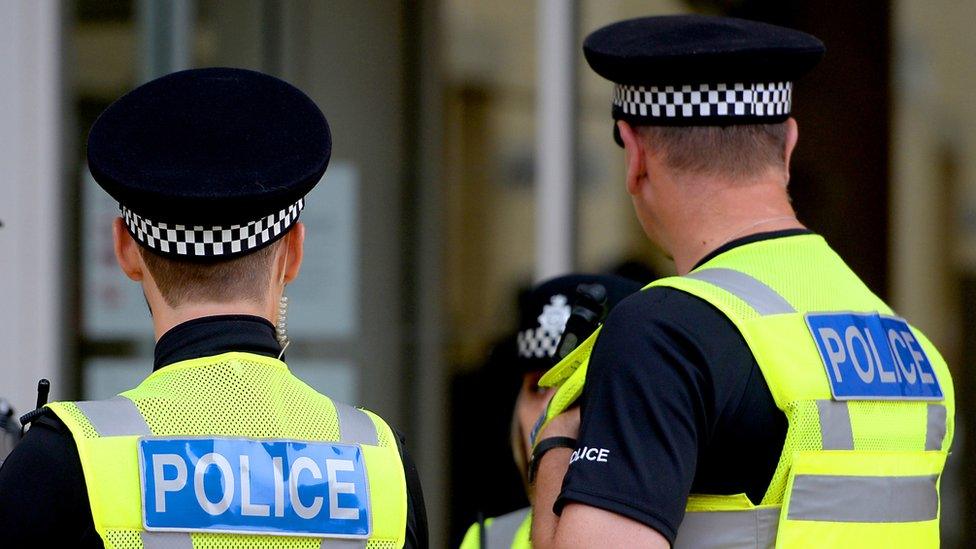Police and charity staff work together to tackle mental health incidents
- Published
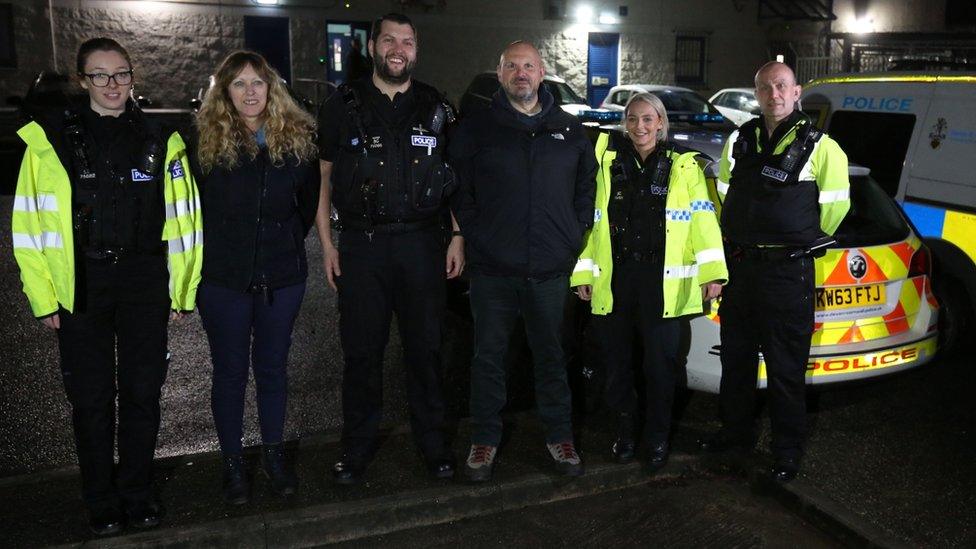
Police are teaming up with mental health workers from the charity Sea Sanctuary
A charity has been working with the police on the front line to help people with mental health issues.
The G999 scheme has paired special constables with mental health workers to help the police at busy times in Cornwall.
The project, aimed at reducing pressure on the police from mental health incidents, has won a national award.
Police said in the coronavirus crisis it was "more important than ever that policing does not impact on the NHS".
The College of Policing award panel said the team gave "individuals the help they need, but it also takes the pressure off the police service".
The number of mental health-related incidents dealt with by police nationally has risen by more than a quarter in four years.
In Devon and Cornwall there has been a 47% increase between 2014 and 2019, with nearly 10,000 cases last year.
The G999 project has operated in Truro and Falmouth but could be extended to other areas.
Out on a shift
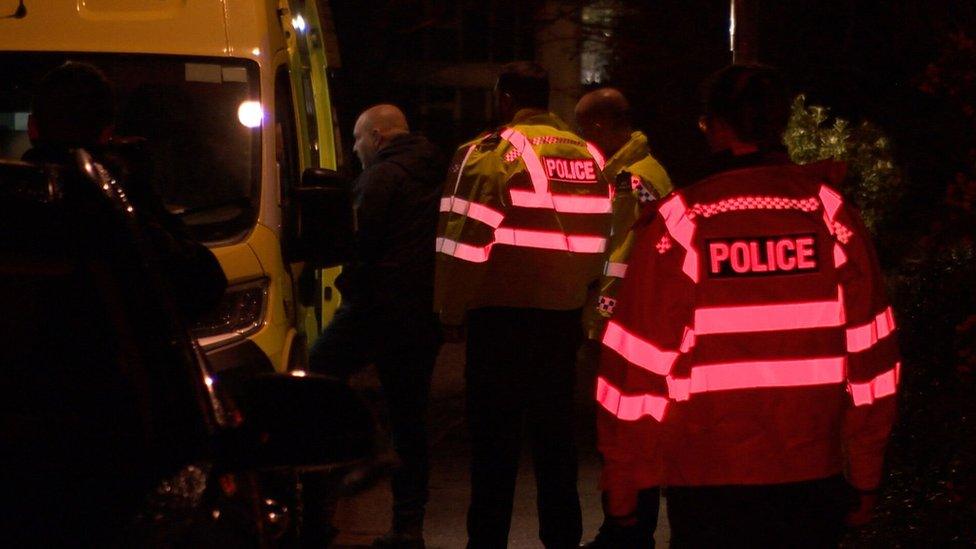
The BBC joined police and charity staff on a Friday night shift
The BBC was given exclusive access to the team and went out with its members on a Friday night shift in February.
Reports were received of a vulnerable man who had gone missing, having threatened to take his own life.
Nine police units were involved before he was eventually tracked down.
The man did not want to engage with the police but did talk to the mental health worker Joe Sabien from the Sea Sanctuary charity, and the other units were stood down.
After an hour and a half of talking, the decision was taken to detain him under the Mental Health Act for his own safety.
He was taken to a mental health facility.
The BBC spoke to the people involved in the incident about how the G999 project helps and affects cases such as this.
The duty patrol sergeant
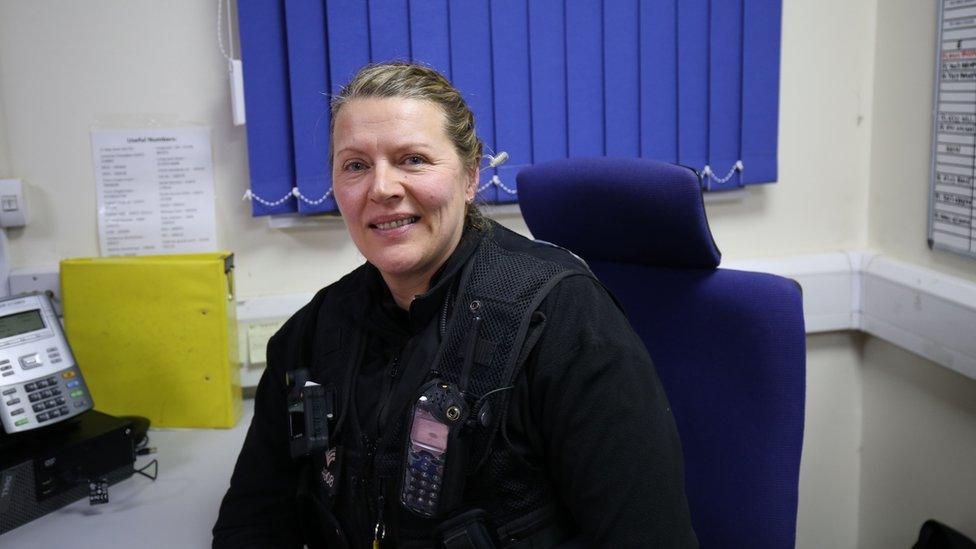
Sgt Anne-Marie Jaggers said the scheme "frees up our officers"
Sgt Anne-Marie Jaggers said there was a large number of people living in the community with mental health issues and police being sent to deal with incidents limited what else the force could send out resources to.
She said the scheme "frees up our officers so they can be deployed elsewhere for more dynamic incidents".
"But it also gives that extra level of support, advice and safeguarding to some of the most vulnerable people in our communities," she said
The superintendent
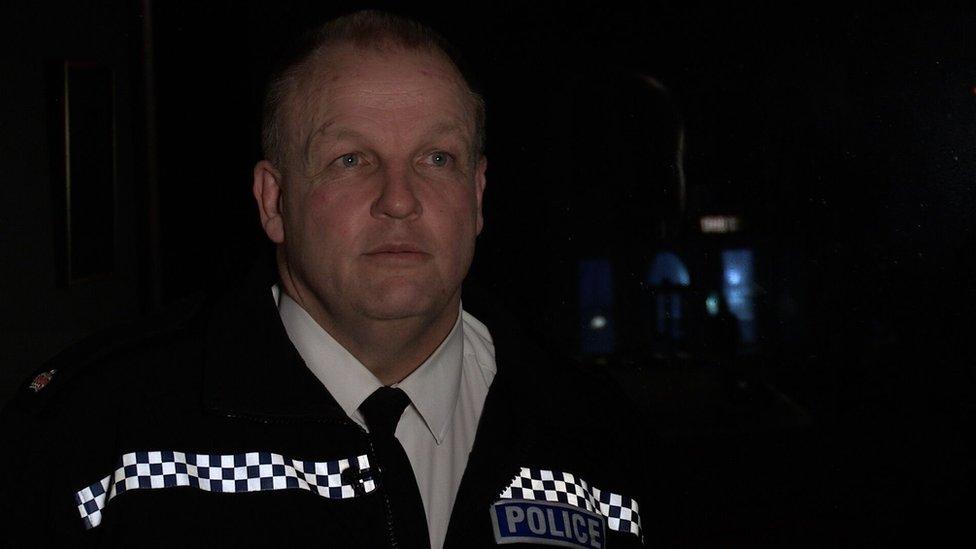
Supt Mark Bolt said his officers want to extend the scheme
Supt Mark Bolt, Devon and Cornwall Police Force lead for mental health, said: "I asked my staff what their biggest frustration was and they told me the amount of time it took for them to deal with mental health incidents.
"The feedback (on the scheme) that I've had from my officers is that it is absolutely brilliant, and can we extend it because they are then able to go out and do the jobs that they need to be doing.
"In this crisis it is even more important than ever that policing does not impact on the NHS."
The mental health worker
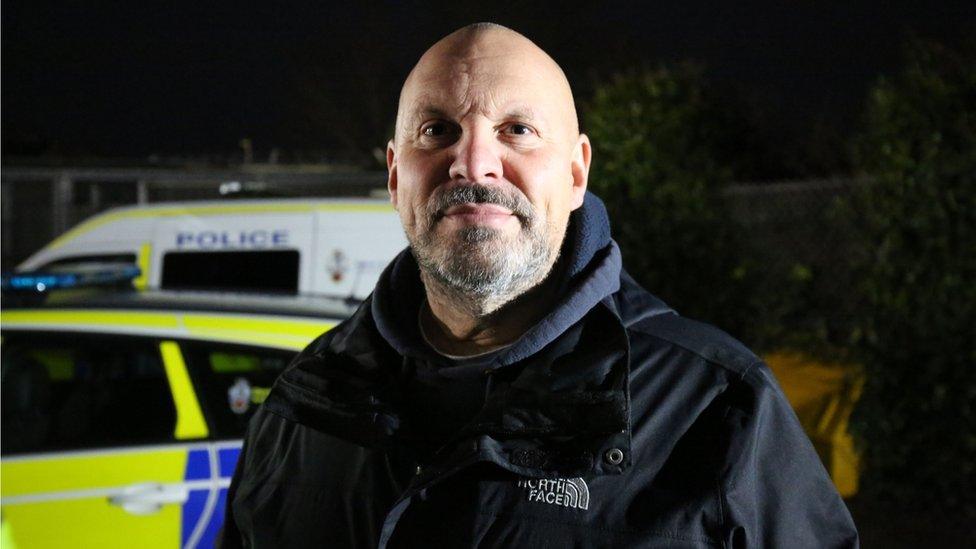
Joe Sabien said some people "don't want to talk to someone in uniform"
Joe Sabien, the chief executive and founder of Sea Sanctuary, said about the man involved in the incident the BBC witnessed "was reluctant to speak to the police which is often the case".
"Sometimes people don't want to talk to someone in uniform but will engage with a mental health worker," he said.
The special constable
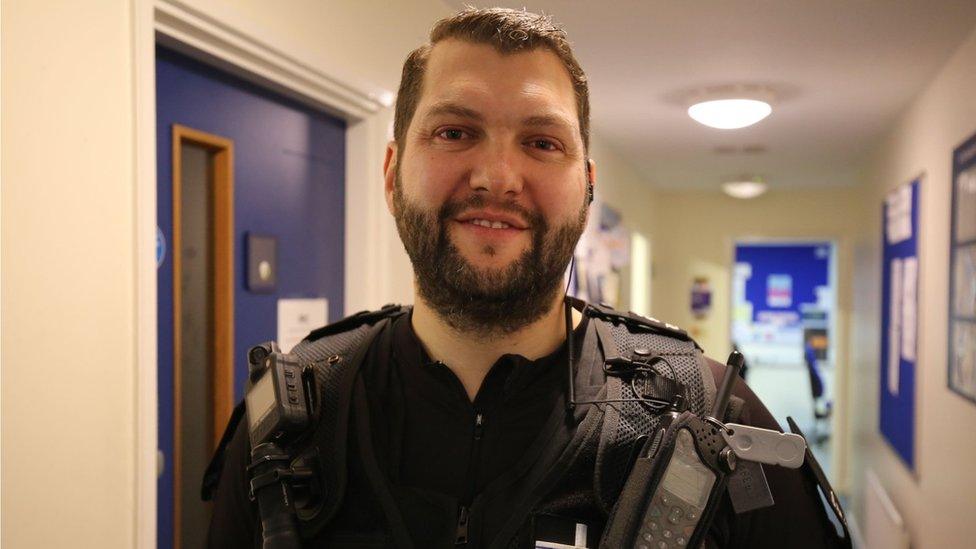
James Scorey said they could "give some fantastic help to people who really need us"
James Scorey said: "There is no other duty like G999 and certainly I didn't think I would be doing this kind of work when I signed up.
"The benefit to us is that when we arrive with the mental health worker we can really offer some solid help to our regular officer colleagues.
"I've turned up at jobs before where the look of relief is all over their faces - they know what we are there to do and what help we can provide. And we can give some fantastic help to people who really need us."
The patient
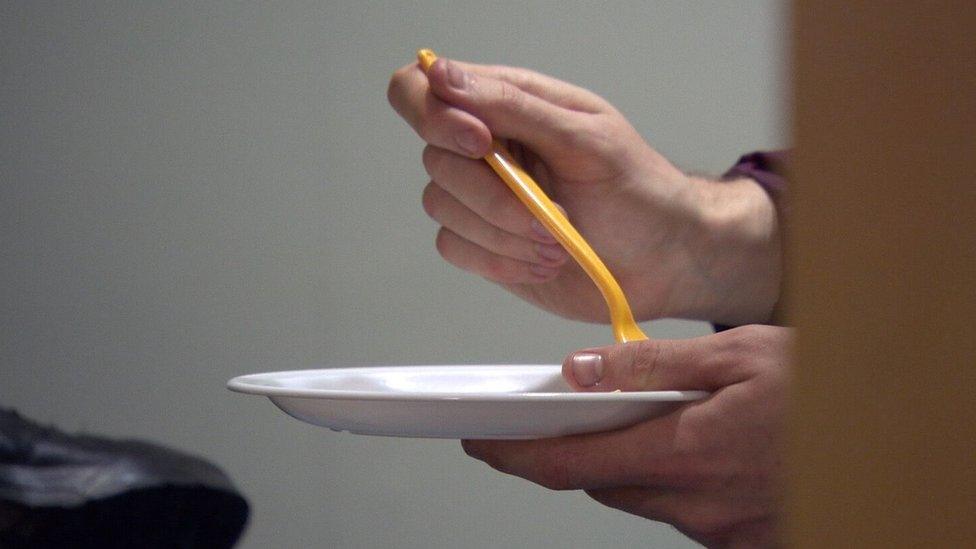
The main said Joe was more friendly and personal
The man said: "It was good talking to Joe because he wasn't a police officer so it was a bit more friendly, a bit more personal and less confrontational.
"I've actually been in this suite twice before and both times I was handcuffed and put in the back of a van. It wasn't pleasant at all.
"Without Joe I probably would have argued myself into a situation where they might have had to arrest me in order to detain me."
A report on the G999 scheme can be seen on BBC Inside Out in the South West of England on BBC One at 19:30 on Thursday 26 March, and afterwards on BBC iPlayer.
- Published2 September 2019
